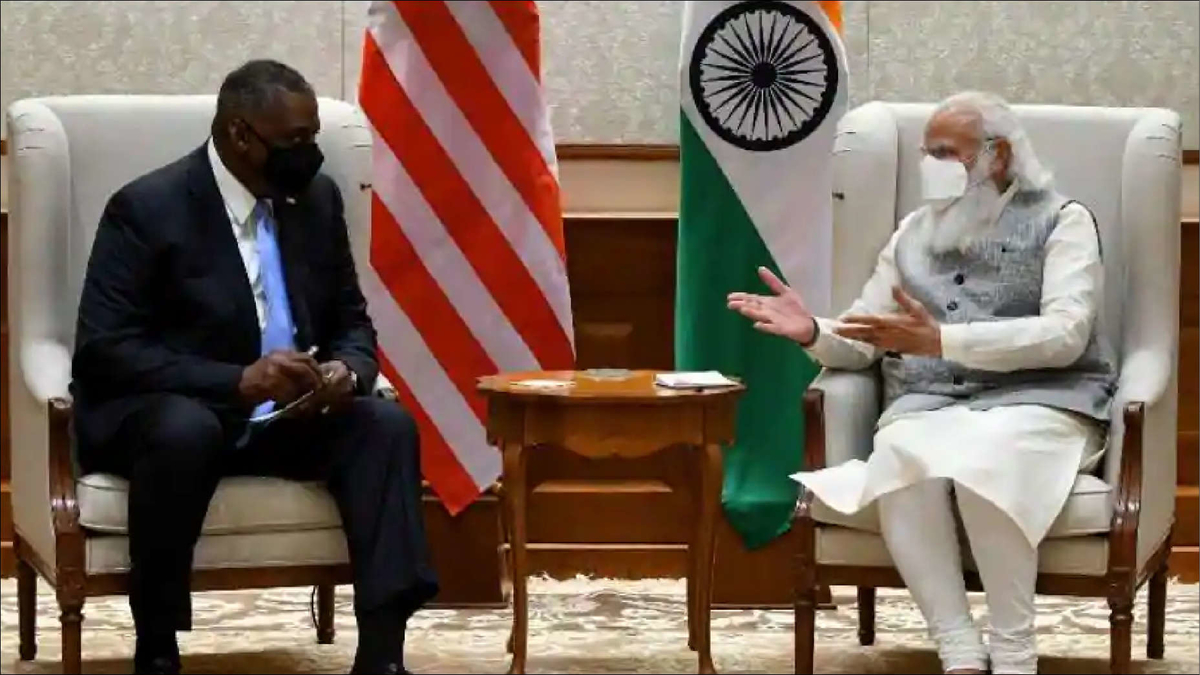


From all accounts, US Defense Secretary Lloyd Austin’s India visit went off very well. As the statements issued by Defence Minister Rajnath Singh and Secretary Austin suggest, the Joe Biden administration is going full steam ahead in the direction that the previous Donald Trump administration had taken regarding India. As Rajnath Singh mentioned in his speech during the joint press conference on Saturday that the visit was part of the process of realising the full potential of the India-US Comprehensive Global Strategic Partnership. India-US ties were elevated to this level during the then President Donald Trump’s visit to India in February 2020 and it’s becoming increasingly apparent that Joe Biden is on course to enhance that policy even further. It is significant that Austin’s first overseas trip as Defense Secretary was to India, which should explain the importance that Washington is giving to its defence ties with New Delhi, including defence cooperation, military to military engagement, information sharing and mutual logistics support, as stated by the Indian Defence Minister. In this respect mention was naturally made of the foundational agreements signed by India and US, namely, LEMOA, COMCASA, and BECA. These agreements have helped India forge a military partnership with the US and will help—in fact is already helping—India get access to cutting edge weapons as well as communication systems. Significantly, Gen Austin talked about India being the “central pillar of our approach to the region”. It would not be wrong to interpret this “region” as extending beyond South Asia and spanning the Indo-Pacific. After all, it is this region where the international rules-based order is coming under maximum pressure because of China and India is on the forefront of countering that threat.
It’s important that Austin’s visit was taking place inside a week of the first meeting of the four heads of state and government of the countries that comprise the Quadrilateral Security Dialogue, otherwise known as Quad. And though this visit was specifically about India-US defence partnership, it was but natural for the two ministers to speak about the Quad. Not once, however, the C-word was uttered by the two, even though the subtext of their speeches was all about China. That Austin visited India so soon after the Biden administration took office is proof that countering China has been put front and centre of Biden’s foreign policy. The talk at the joint press conference was however about the need to have an “international rules-based order”, the importance of having a “free and open” Indo-Pacific, or sharing the “vision for regional security in the Indo-Pacific”. India went a step further and true to its wont talked about “non-traditional challenges such as oil spills and environment disasters, drug trafficking, illegal, unreported, and unregulated fishing” in the Indo-Pacific, thus proving once again how uncomfortable it still is about being seen to be aligning with the US in an increasingly bipolar world. The world order while striving to be multipolar, is functioning inside a bipolar construct of US vs China, and no fig leaf of multipolarity or talk about “unregulated fishing”—fishing?!—will hide the fact that India does not have a choice but to align with the US, which it is doing already, and that the Quad is all about countering China. However, as long as India’s traditional diffidence, or habit of sitting on the fence does not impact its policy, fig leaves too are acceptable.
As for the Quad, it must go beyond meetings, either virtual or in-person. All four parties need to push to formalise it into a security alliance and work in association with other countries in the region as well as other “democratic” powers that want to get active in the Indo-Pacific region. For this an Indo-Pacific charter is necessary. An operational headquarters too will have to be identified. The aim of Quad is not war, but peace—containing China to maintain peace and to ensure that the world does not get rewritten with Chinese Communist Party characteristics. And for that a security alliance is necessary. China under Xi Jinping has delusions of grandeur and is aggressively pursuing an imperialist agenda. The world cannot afford to wait forever for the free and democratic world to come together to stop China’s aggression. It has to happen, and it has to happen now.